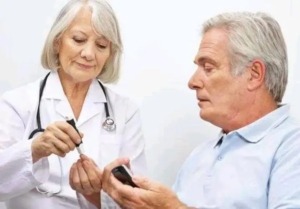Sea buckthorn has hypoglycemic potential; we conducted a test to determine its effects on glucose in people with impaired glucose regulation (IGR). A total of 38 subjects with IGR completed the intervention of consuming sea buckthorn fruit puree (90 mL/day, five weeks), washing out (four weeks), and then consuming placebo (90 mL/day, five weeks). Our results indicated that consumption of sea buckthorn fruit puree for five weeks showed a slight downward trend in fasting plasma glucose (FPG) in subjects with IGR.
Considering that IGR contributes to a high risk of type 2 diabetes and other metabolic diseases, it is crucial to investigate more effective prevention strategies.
The positive effect of functional foods rich in bioactive ingredients on preventing and managing chronic diseases is commonly accepted. In the present study, consumption of 90 mL sea buckthorn fruit puree for 35 days led to a tendency for FPG to decrease in people with IGR.
Consistent with the positive effect found in this study, it showed a small but significant decrease in FPG after the inclusion of a certain amount of air-dried sea buckthorn for 33–35 days in the diet of 110 overweight and obese women.
In a recent animal trial, after a four-week treatment period (100–200 mg/kg/day), the FPG of diabetic mice was significantly reduced in the sea buckthorn seed protein (SSP) and sea buckthorn polysaccharide group compared with the module control group. In contrast, sea buckthorn procyanidins showed no effect.
Administration of flavonoids from sea buckthorn pomace for four weeks also resulted in significantly hypoglycemic effects in ICR mice with alloxan-induced diabetes, even in the low dose group (3.0 mg/kg/day).
The study suggested that a middle or high dose of sea buckthorn fruit oil (200 or 300 mg/kg/day) could lower the FPG at a rate of 10.47% and 13.79% in T2DM SD rats, respectively.
Additionally, the continuous intervention of methanolic extract from Hippophae rhamnoides Linn. leaves at 200 or 400 mg/kg for 45 days both exhibited significant reduction (22% and 39%, respectively) in FPG compared to the diabetic control rats.
Prior research suggested that sea buckthorn and its extracts might have a hypoglycemic effect. Protein in sea buckthorn is considered a high-quality resource of essential and semi-essential amino acids. A study confirmed an increase of hypoglycemic-related beneficial bacteria (Bifidobacterium and Lactobacillus) in diabetic mice with consumption of SSP, which could be due to the higher concentrations of short-chain fatty acids and lower pH produced by the metabolism of SSP. An in vitro experiment conducted in insulin-resistant HepG2 cells revealed that the sea buckthorn fruit oil rich in palmitoleic acid (also called Omega-7) could increase the expression of glucose transporter type 4 through the activation of the PI3K/Akt signaling pathway.
In addition to the macronutrients mentioned above, evidence accumulated over the years indicates that biologically active substances rich in sea buckthorn may also play an important role, especially polyphenols. The mechanisms involved in the relevant study include the inhibition of glucose absorption, stimulation of insulin secretion and activation of insulin receptors, modulation of hepatic glucose output, etc.
Based on these studies, abundant unsaturated fatty acids (e.g., palmitoleic acid) and flavonoids (especially Isorhamnetin and Quercetin) in the sea buckthorn used in this study may explain its positive role in hypoglycemic.
When it comes to PPG, the results of previous studies were not wholly consistent. The study showed that four weeks’ treatment of sea buckthorn fruit oil improved the oral glucose tolerance test in T2DM SD rats in a dose-dependent manner.
To date, there are few studies concerning the effect of sea buckthorn on HbA1c or GSP, which reflects the average PG level over three months or 2–3 weeks, respectively. We treated 30 type 1 diabetic children with a dietary supplement containing blueberry and sea buckthorn for two months, and the levels of HbA1c significantly lowered in this group.

Leave A Comment